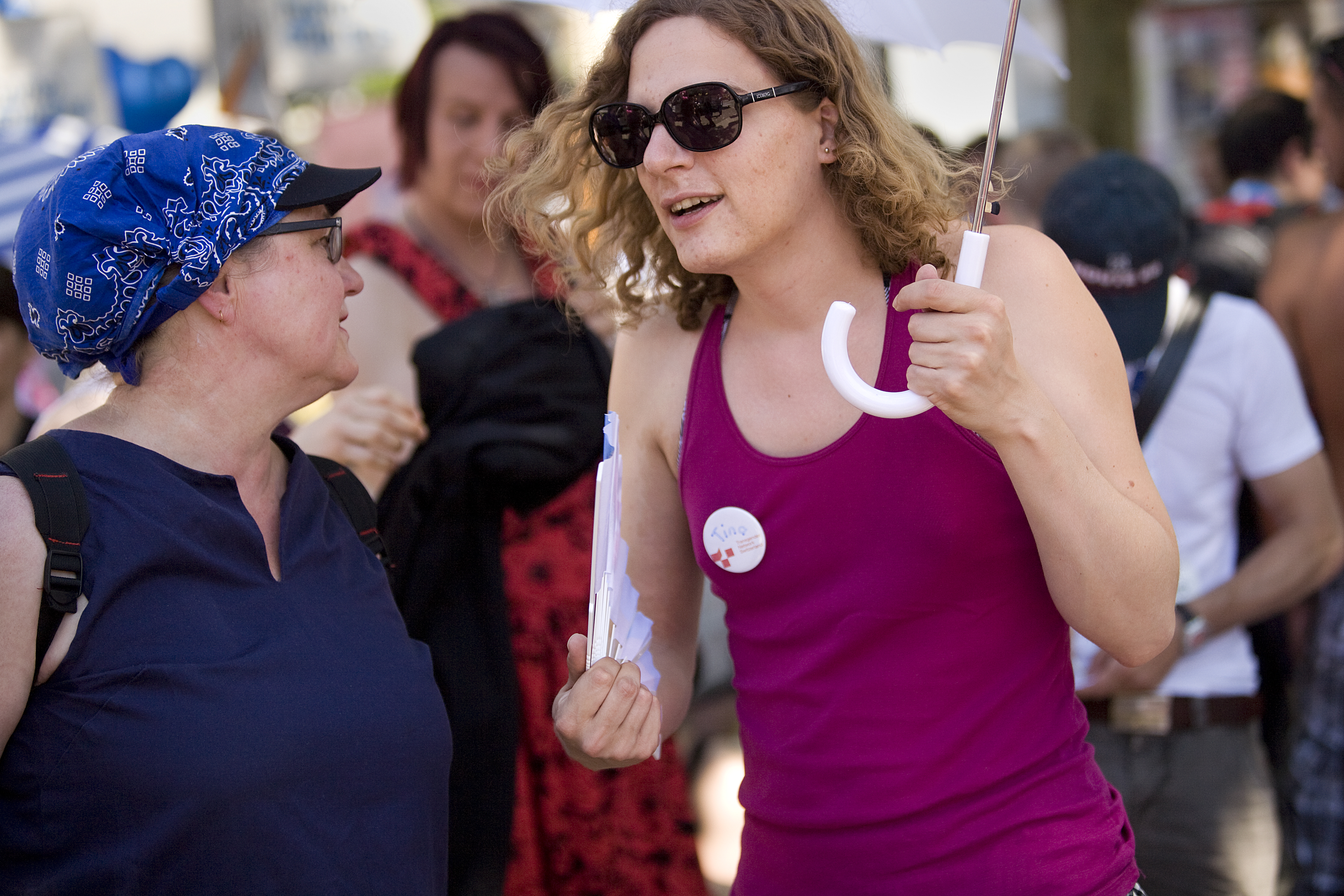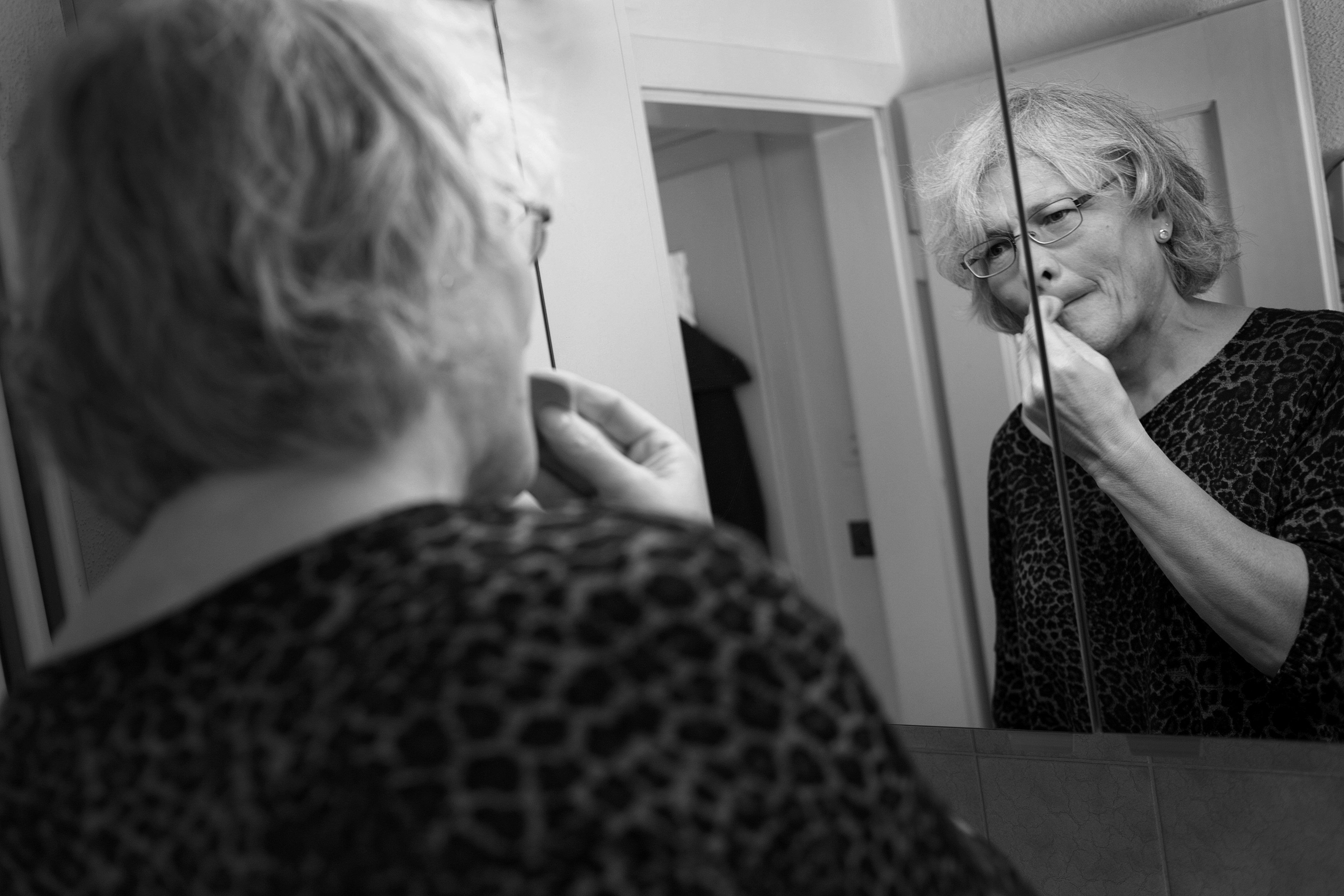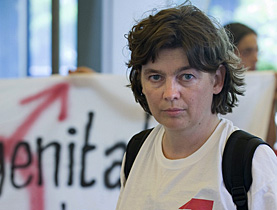Third gender fights for recognition

A child who is born neither a girl nor a boy has it tough from the start, and deciding on your gender is even more difficult when you don’t know who you are. In Switzerland, moves are underway to end unnecessary medical treatment as well as discrimination, and leave decisions to those most directly concerned.
“Imagine what it’s like when the midwife can’t tell you if your baby is a boy or a girl. What should you call it? How do you announce the birth to your friends or to the registrar’s office? ‘He was born with a male XY chromosome, but also a uterus, a sort of penis or a large clitoris’?”
This is the emotional description Karin Plattner gives of the birth of her first child 13 years ago.
The gender
Hermaphroditism, pseudohermaphroditism, sexual ambiguity, intersexuality, development disorders, variations of sexual development are just a few of the terms that have been used to describe this condition. It affects less than one birth out of a thousand according to the Accord Alliance, an American association that helps people affected by so-called disorders of sex development.
“It’s a newborn child or an adolescent whose sex cannot be directly determined or whose assigned sex does not correspond with its internal or external genital organs,” explains Blaise Meyrat, a paediatric surgeon at Lausanne’s university hospital. “It’s an intermediate situation, tending towards one gender or the other with a wide spectrum of possibilities.”
Disorders of Sex Development (abbreviated “DSD”) are defined by the medical community as “congenital conditions in which development of chromosomal, gonadal or anatomic sex is atypical.” DSD is an umbrella term covering a wide variety of conditions in which sex develops differently from typical male or typical female development.
As the medical definition implies, in some cases a person with a DSD may have sex chromosomes different from the male-typical XY or the female-typical XX.
In other cases, the person may have typical male or female sex chromosomes but have a relatively unusual mix of male-typical and female-typical anatomical traits. In still other cases, just a small number of sex organs are atypically developed or essentially missing.
Source: Accord Alliance
Genital surgery yes or no?
Between 1950 and 1990, genital surgery and hormone therapy were carried out on small children to ensure they fit into one of the registry’s gender categories, even if their condition did not warrant any intervention.
Treatment in fact fulfilled what was considered a social requirement.
“It seemed important at the time to ensure that individuals find a place in society and to help parents overcome their distress quickly,” Meyrat told swissinfo.ch. “Then research started to show the results after surgery were neither simple nor satisfying.”
If surgery cannot be reversed and the assigned gender is not the same as the mental gender, it can cause damage. Karin Plattner refused surgery for her child, whom she brought up as a girl before letting her decide for herself, between the age of six and puberty.
Intersex activist Daniela Truffer was surgically assigned her gender when she was just a few months old. The decision to make her a girl was reached because it was considered a less risky operation.
“I was castrated,” she said. “A country that outlaws genital mutilation as well shouldn’t tolerate ‘cosmetic’ surgery on infants. But despite recommendation to proceed with caution, most doctors are still operating.”
Like Blaise Meyrat, other surgeons are now thinking twice before putting children under the knife, preferring to delay any operation if it isn’t necessary.
“You have to consider what is more important, the physical or the mental health of the child,” he said. “Of course the parents are stressed, but operating a baby is also very stressful, especially as it will require more than one operation.”

More
Finding the right identity
Recommendations
Following a parliamentary intervention, the government asked the National Advisory Commission on Biomedical Ethics to look into the issue.
Last autumn, the commission released a series of recommendations that included the following statement: “On ethical and legal grounds, all (non-trivial) sex assignment treatment decisions which have irreversible consequences but can be deferred should not be taken until the person to be treated can decide for him/herself.”
For Judith Wyttenbach, deputy director of Bern University’s Interdisciplinary Centre for Gender Studies, the recommendations mark the beginning of a public debate dominated until now by the medical corps.
“Human rights are for everyone,” she said. “Our official system, based on the separation of the sexes, is inflexible and leaves no room for someone who is neither male nor female.”
The commission stopped short of proposing a “third gender” as seen on Australian passports. It has recommended, however, that it “be possible for the sex recorded in the official registration of births to be un-bureaucratically amended.”
Wyttenbach herself would prefer the term “indeterminate sex” to bypass society’s male-female dichotomy.
“The appropriate reaction to intersex issues should be a balance between parents’ and children’s interests,” she told swissinfo.ch. “A child’s physical integrity should be the main priority, and if his or her parents have the right to decide for them, it should always be based on the child’s interest in the short and long term.”
Meyrat says he was pleasantly surprised by the commission’s recommendations, but reckons it will take time to convince all physicians to toe the line, which is why he would prefer a legal norm.
“It’s a pity that, because of a lack of ethical clarity in the medical profession, we have to get legislators involved, but in my opinion it’s the only solution,” he added.
In the meantime, sexual education is considered the best way of overcoming the social taboo surrounding intersexuality. “Schoolbooks should talk about all the types of intersexuality to ensure children are better accepted and better informed, just as adults should be,” suggests Truffer.
According to Meyrat, this recommendation is even more relevant because the number of cases of intersexuality is rising, notably due to changes in the way we eat and body products.
A ‘chance’ since, if it becomes more frequent, intersexuality will be mundane,” he added.
(Translated from French by Scott Capper)

In compliance with the JTI standards
More: SWI swissinfo.ch certified by the Journalism Trust Initiative


You can find an overview of ongoing debates with our journalists here. Please join us!
If you want to start a conversation about a topic raised in this article or want to report factual errors, email us at english@swissinfo.ch.